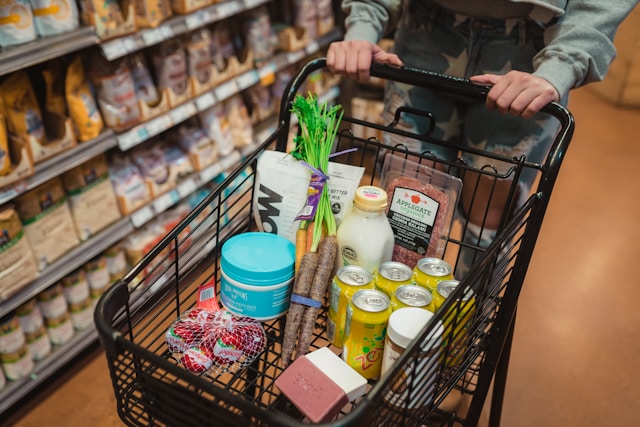As women age, their nutritional needs evolve due to hormonal shifts, lifestyle changes, and overall health considerations. From building a strong foundation in your 20s to managing hormonal imbalances in menopause, a well-rounded diet plays a crucial role in maintaining well-being throughout life. In this article, we’ll explore how women can tailor their nutrition to meet the specific demands of each life stage.
Diet Tips for Women in Their 20s
In your 20s, it’s all about building healthy habits that will last a lifetime. This is the perfect time to establish a strong nutritional foundation, as your body’s needs are still relatively stable, and it’s the ideal phase to focus on nutrient-dense foods.
Key Nutrients to Focus On:
- Iron: Since many women experience menstruation, iron is essential for maintaining energy levels and preventing anemia. Include iron-rich foods like spinach, lentils, and lean red meat in your diet.
- Calcium: Your 20s are a critical time to build strong bones, as bone mass peaks around this age. Dairy products, leafy greens, and fortified plant-based milks are great sources of calcium.
- Folic Acid: Important for reproductive health, folic acid is especially vital if you’re planning on starting a family. It helps prevent birth defects and supports cell growth. Leafy greens, beans, and fortified cereals are rich in this nutrient.
One of the best strategies in your 20s is learning how to organize your week for better nutrition. Planning meals ahead of time ensures you’re meeting your nutrient needs without falling into the trap of processed or fast foods. Meal prepping, grocery lists, and setting aside time to cook can set you up for success.
Diet Tips for Women in Their 30s
As you enter your 30s, your body begins to undergo subtle hormonal shifts. For many women, this decade can bring increased stress due to balancing careers, family, and personal goals. Nutrition during this time focuses on maintaining hormonal health, managing stress, and supporting fertility for those who may be considering starting or expanding a family. Incorporating nutrient-dense foods like bone broth can be especially beneficial, as it’s rich in collagen, amino acids, and minerals that support gut health, skin elasticity, and hormonal balance.
Hormonal Health and Stress Management
- Healthy Fats: Incorporate healthy fats like avocado, nuts, and olive oil to support hormone production. Omega-3s, found in salmon, flaxseeds, and walnuts, can help reduce inflammation and promote brain health.
- Protein: Protein supports muscle repair and can help manage stress by stabilizing blood sugar levels. Lean meats, beans, and quinoa are excellent sources of protein.
Nutrients for Fertility and Well-being
- Folate and Iron: If you’re planning on becoming pregnant in your 30s, folate and iron remain critical. These nutrients not only support reproductive health but also help sustain energy levels.
- Antioxidants: Foods rich in antioxidants, like berries and green tea, can combat oxidative stress, which increases during stressful times.
Staying organized with your nutrition is crucial in your 30s as life becomes busier. How to organize your week for better nutrition involves meal planning with an emphasis on whole foods and nutrient-dense meals. Incorporating stress-relieving practices like yoga and mindfulness can also help manage the challenges of this stage.
Diet Tips for Premenopausal Women (Late 30s to 40s)
As women approach their late 30s and early 40s, the body begins preparing for the transition into menopause. This stage, known as perimenopause, is marked by more pronounced hormonal changes, including fluctuating estrogen levels. Nutrition can help ease this transition and prepare the body for the changes to come.
Managing Hormonal Shifts
- Phytoestrogens: These plant compounds, found in soy, flaxseeds, and lentils, can mimic estrogen in the body and help balance hormonal fluctuations. Including these foods in your diet can help alleviate symptoms like hot flashes and mood swings.
- Low-Glycemic Foods: Foods that have a low glycemic index, like whole grains, vegetables, and legumes, can help stabilize blood sugar and prevent energy crashes.
Bone Health
- Calcium and Vitamin D: Bone health becomes increasingly important as estrogen levels drop, making calcium and vitamin D essential to prevent bone density loss. Fortified plant-based milks, fatty fish, and sunlight exposure are excellent sources of these nutrients.
Diet Tips for Menopause
Menopause brings with it a host of symptoms, including hot flashes, mood swings, and vaginal dryness. A balanced diet can help manage these symptoms, reduce discomfort, and promote overall well-being.
Foods to Alleviate Menopause Symptoms
- Phytoestrogens: As mentioned earlier, phytoestrogen-rich foods like soy and flax seeds can be beneficial in menopause by naturally supporting estrogen levels.
- Hydration: Staying hydrated is crucial for skin and vaginal health during menopause. Drink plenty of water and include hydrating foods like cucumbers and watermelon.
- Fiber: To support digestion and help manage weight gain that often accompanies menopause, a fiber-rich diet is essential. Whole grains, fruits, vegetables, and legumes should be staples in your meals.
Menopause and Vaginal Health
One common symptom of menopause is vaginal dryness, which can affect comfort and intimacy. Healthy fats like avocado, nuts, and seeds can help improve skin elasticity and overall hydration, including vaginal tissues.
Many women also turn to medical treatments like vaginal estrogen cream to address vaginal dryness more directly. These creams can help replenish moisture, restore tissue elasticity, and improve comfort, offering a solution for those seeking relief from menopause-related vaginal discomfort.
Additional Section: Lifestyle Tips for Women in Their 20s, 30s, and Menopause
Beyond diet, lifestyle choices play a significant role in maintaining health at every stage of life. From regular exercise to stress management, these habits complement a healthy diet and promote overall wellness.
Exercise
Regular physical activity is essential at every age. In your 20s and 30s, focus on a mix of cardiovascular exercise and strength training to build muscle and maintain heart health. As you approach menopause, weight-bearing exercises like walking and resistance training help maintain bone density and prevent osteoporosis.
Sleep and Stress Management
Quality sleep and stress management are often overlooked but are critical for hormonal balance and overall health. Practicing mindfulness, yoga, or meditation can help manage stress, improve sleep quality, and support mental well-being.
Supplements and Vitamins
Throughout life, certain supplements can provide additional support. In your 20s, a multivitamin with iron and folic acid can be beneficial. In your 30s and beyond, Vitamin D, calcium, and probiotics can help support bone health, digestion, and immune function. However, it’s important to consult with a healthcare provider to determine the best supplements for your individual needs.
Conclusion
As women move through the different stages of life, adjusting dietary and lifestyle habits is essential for maintaining health and well-being. In your 20s, focus on building a solid nutritional foundation; in your 30s, prioritize hormonal health and stress management; and in menopause, choose foods and strategies that support hormonal balance and address symptoms like vaginal dryness.
Remember, tailoring your nutrition to your life stage and organizing your week around healthy choices is key to staying vibrant and healthy at every age. Don’t hesitate to seek professional advice to create a personalized approach to your health and well-being, ensuring that you’re making the best choices for your unique body.





